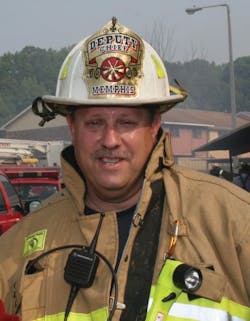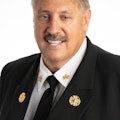The Patient Protection and Affordable Care Act (PPACA) is here. Passed by Congress, signed into law by President Obama and affirmed by the U.S. Supreme Court, it is the law of the land. Some 2,700 pages of law and already 14,000 pages of regulation that has been written point to nothing short of a full-fledged change that is coming to our health care system. It is not voluntary, as we saw in the 1990s with managed care organizations attempting to control healthcare costs through pathway management models. This new federal law will mandate change.
As I noted in my April 2013 column, “What Could Happen If We Look the Other Way,” Republicans in Congress want to abolish the law, but they do not control Congress or the White House. Therefore, chances are the PPACA is going to change the U.S. healthcare system as we know it. Since the fire service is the largest provider of emergency medical services in the U.S. when it comes to a healthcare-systems approach, the fire service is in a unique position to jump in and be a leader when it comes to change of the health care system, or stand on the sidelines and watch the parade go by. Matt Zavadsky of the EMS system in Fort Worth, TX, has a better analogy. He jokes that there’s a reason why we don’t see unicorns these days – they missed getting on the ark when Noah was loading it with animals. Since the majority of what the U.S. fire service does is EMS, we can be tremendously impacted by the PPACA. We don’t want the American fire service to be put in the category of a unicorn.
The costs of healthcare
One aspect of the PPACA concerns money. This means providing medical insurance for those who cannot now afford it and controlling costs through revenue sharing. Early models of Medicare Accountable Care Organizations (ACOs), called the Pioneers, proved there are some bumps in the road with this new model, but it was only a test run. They will figure it out.
There were, however, high points among the Pioneers and Medicare feels it was successful. During just this first year, more than a third reduced costs, producing cumulative savings of more than $87 million and saving Medicare nearly $33 million. For the 669,000 Medicare patients in the program, costs increased by just 0.3% over the course of the year – a much smaller increase than the 0.8% experienced by similar Medicare beneficiaries over the same period. Just two Pioneer ACOs lost money, and their losses totaled $4 million. There were 32 ACOs in the first run and of the 18 that saved money, 13 had high enough savings that they will split $76 million in profits.
An expanded role for EMS
Part of saving money is managing the care of patients before they become too sick and require significant hospitalization and after they are discharged from the hospital to prevent readmission. That is where fire service EMS can play a role – and increase jobs and generate revenue for fire departments.
Companies like AMR are already ramping up for this change and have created a division just for community paramedics and after-hospital care. AMR marketing materials say, “The central focus of the AMR Community Paramedic Specialists (AMR CPS) is the use of a specially trained and credentialed paramedic to provide out of hospital evaluation and therapy that is tightly integrated with both the acute healthcare system and the patient’s primary care medical home.”
It is also buying companies that deliver various types of home healthcare in an apparent attempt to weave a one-stop, one- solution program. The fire service already has systems in place to integrate with the healthcare community to deliver these services, although it may take a regional approach like 23 fire departments in the greater Phoenix, AZ, area are working on.
Understand the changes
What should a fire service leader do? Educate yourself on how EMS will be impacted by the PPACA and the changes that are coming. Understand how the system is changing and how EMS will be impacted. Begin regional planning with other fire departments to offer solutions to the healthcare community. Interact with local hospital CEOs and talk about how you can work together. Don’t forget to the share in the profits.
Get to work now before the ark door is shut and you miss the boat like the unicorns did.
For more news and training on EMS, visit http://EMSWorld.com/.
GARY LUDWIG, a Firehouse® contributing editor, has 35 years of fire, rescue and EMS experience. He currently serves as a deputy fire chief for the Memphis, TN, Fire Department. Ludwig is also chair of the EMS Section for the International Association of Fire Chiefs. He can be reached through his website at garyludwig.com.
About the Author
Gary Ludwig
GARY LUDWIG has served in three fire departments over his career: St. Louis, Memphis, and Champaign, IL. His fire, EMS and rescue career spanned a total of 46 years, and he has been a paramedic for over 44 years. Ludwig served as president of the International Association of Fire Chiefs in 2019-20. He has a Master’s degree in Business and Management, has written over 500 articles for professional fire and EMS publications and is the author of seven books.
Connect with Gary
Email: [email protected]
Facebook: Gary Ludwig
Twitter: @ChiefGaryLudwig
Website: garyludwig.com

